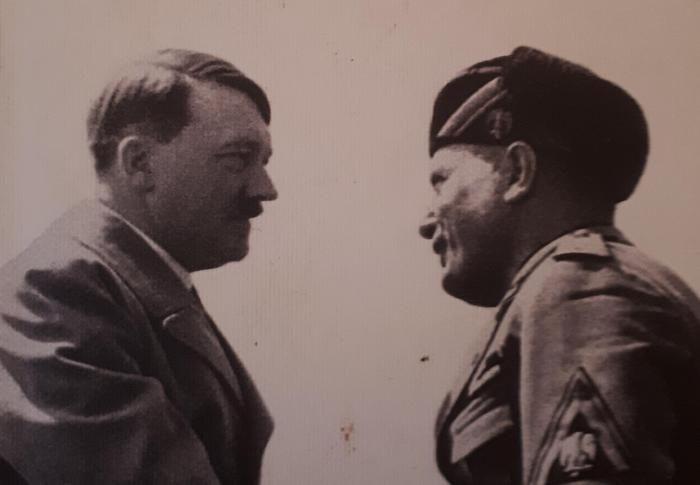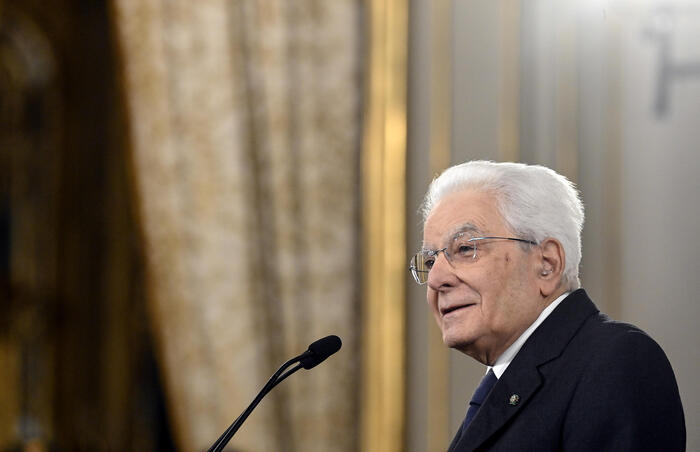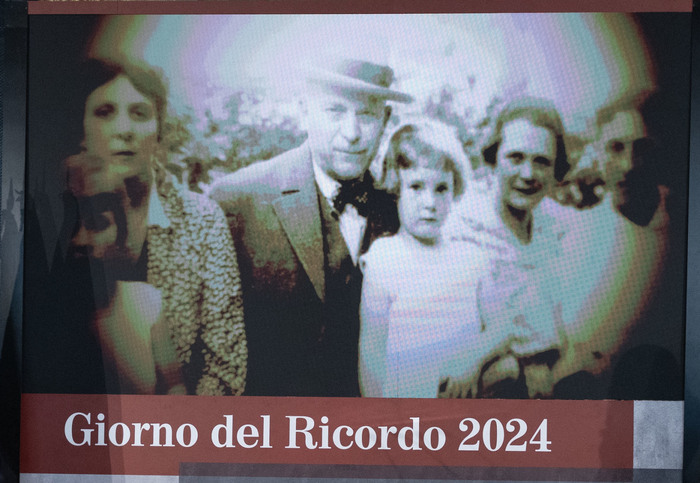TO LFIO CARUSO, 'SAVE THE ITALIANS. MUSSOLINI AGAINST HITLER. BERLIN 1944 (NERI POZZA, PP.
223, 18 EURO) On 12 September 1943, when the Germans freed Benito Mussolini in Campo Imperatore, the Duce hopes that those soldiers who have come here are English. Discovering that things are different, his disappointment is obvious, but this does not prevent him from lying to Otto Skorzeny: "I knew - he says to the military - that Adolf Hitler, my friend, would not have abandoned me".
Thus continues the tragic comedy that goes on until the end, when the Italians, in the silence of the Republic of Salò, do not know what to do in Berlin before the Soviet advance in the spring of 1945: "Many seem to repeat the same situation of the 'September 8, when no one had known how to behave with the Germans and each had settled according to conscience and convenience ", writes Alfio Caruso, who in his" Save the Italians "continues to dig into the history of the Fascist period, thanks also to the testimonies by Renzo Morena, son of General Umberto, who in Berlin was the head of the military mission to the embassy led by Filippo Anfuso; Prisca Bettoni, daughter of the embassy councilor Gian Galeazzo; Oreste Foppiani, whose father, Armando, was delegate of the Red Cross.
Caruso uncovered a previously unpublished history of that period: Mussolini's attempt to save seven hundred thousand interned Italians, fascists and others, forced by Hitler to a condition of almost slavery, used mainly as a labor force, as happened to the hundred thousand employees to free roads and squares after the Allied bombing of November 23, 1943 in Berlin.
On July 20, 1944, during a stop in Gorlitz of the train that transports Mussolini to Rastemburg for the meeting with Hitler, who for a few hours had escaped the attack concocted by Colonel von Stauffenberg, tells Morera that we need to bring home the seven hundred thousand compatriots who they refused to join the Republic of Salò: not an Italian must die or return to his mutilated or tubercular homeland, in short, his words were.
It is not clear what drives the leader to this determination.
It is he, underlines Caruso, who four years earlier had led the country to war, cynically claiming he needed a few thousand deaths. Perhaps it is "the last displeasure of the Duce to the Fuhrer. The conclusion of a relationship in which the former has always suffered the latter. An irritated distancing that arrives too late, on which the" hidden and humiliating occupation "of that part of Italy contracted to the Republic ". Probably he gave himself another chance, making it clear that "he had obtained from his superintendent what Badoglio had not obtained from Roosevelt and Churchill, despite having declared war on Germany: the release of prisoners in Allied hands".
Whatever the reason, many are saved. Prisca Bettoni recounts an episode that was reported to her in 1959 by Carlo Azeglio Ciampi, the future president of the Republic: in uniform as a German officer, the father, who knew the language very well and was blond with blue eyes, "introduced himself to the police station where Italians are imprisoned in trouble with justice. Each time they exhibit a false release order ". The operation goes on for several days, "until Dad feels that the SS have become suspicious". The liberated Italians are hidden in the basement of the embassy, already used by Foppiani to hide the fleeing internees. (HANDLE).
Mussolini and the 700 thousand Italians interned in Germany
2019-12-13T11:40:57.813Z

ALFIO CARUSO, 'SAVE THE ITALIANS. MUSSOLINI AGAINST HITLER. BERLIN 1944 (NERI POZZA, PP. 223, 18 EURO) On September 12, 1943, when the Germans freed Benito Mussolini at Campo Imperatore, the Duce hopes that those soldiers who arrived there are English. (HANDLE)

/cloudfront-eu-central-1.images.arcpublishing.com/prisa/ZRLOH32ENCW263BU2E35WQOSNA.jpg)






